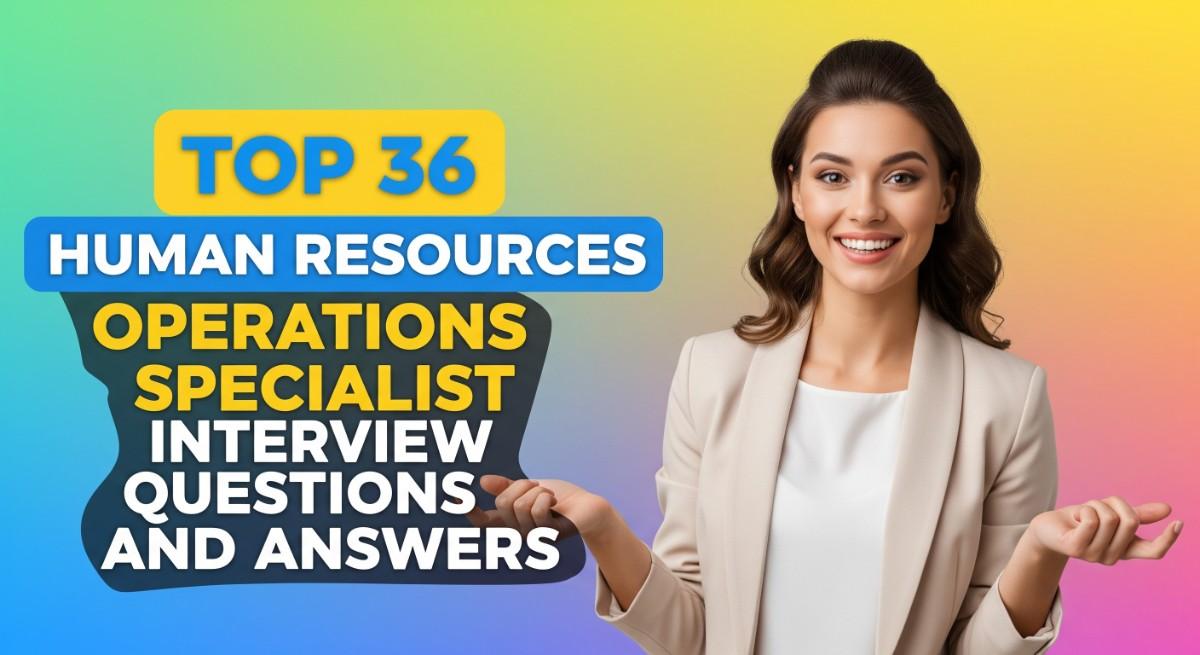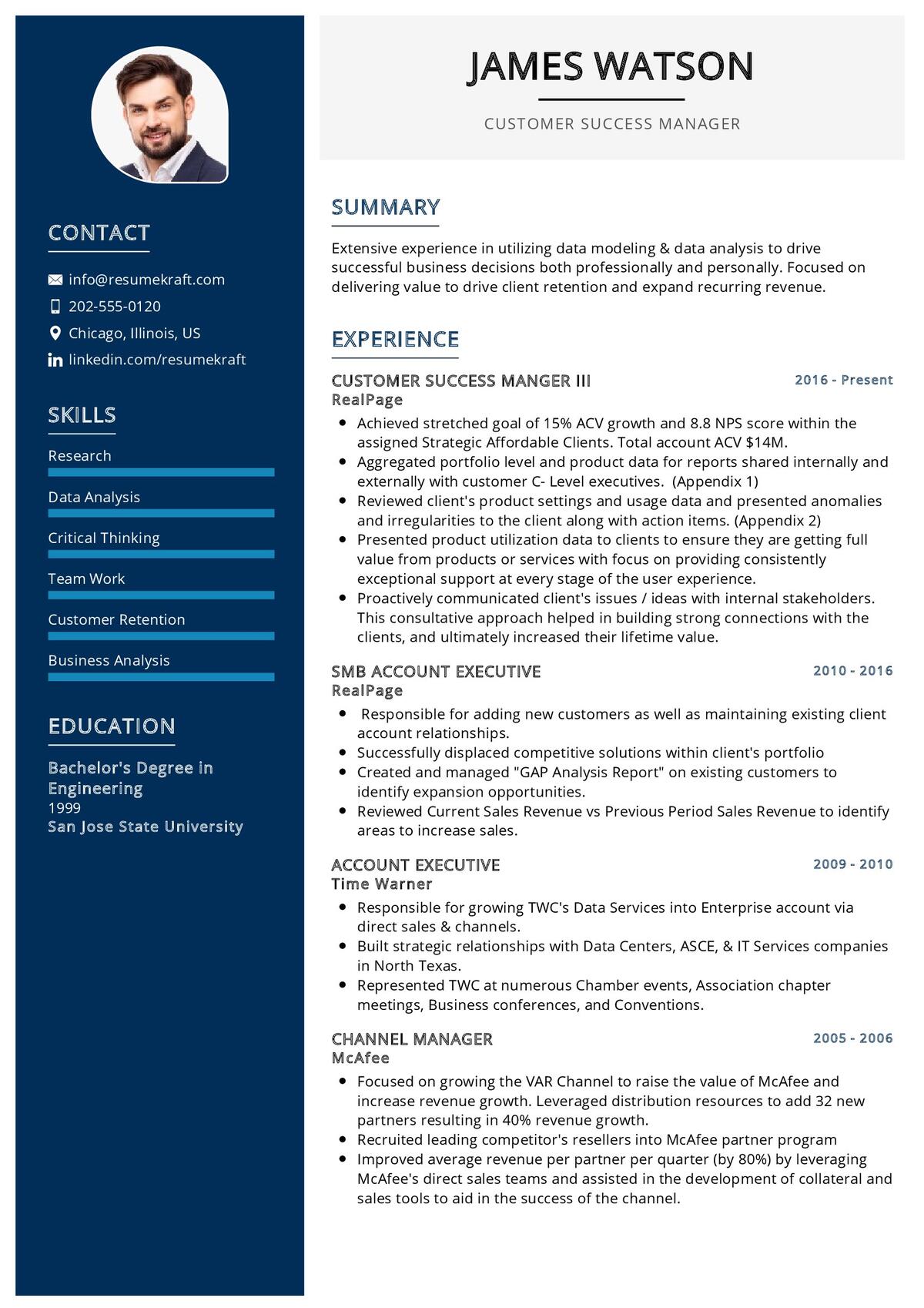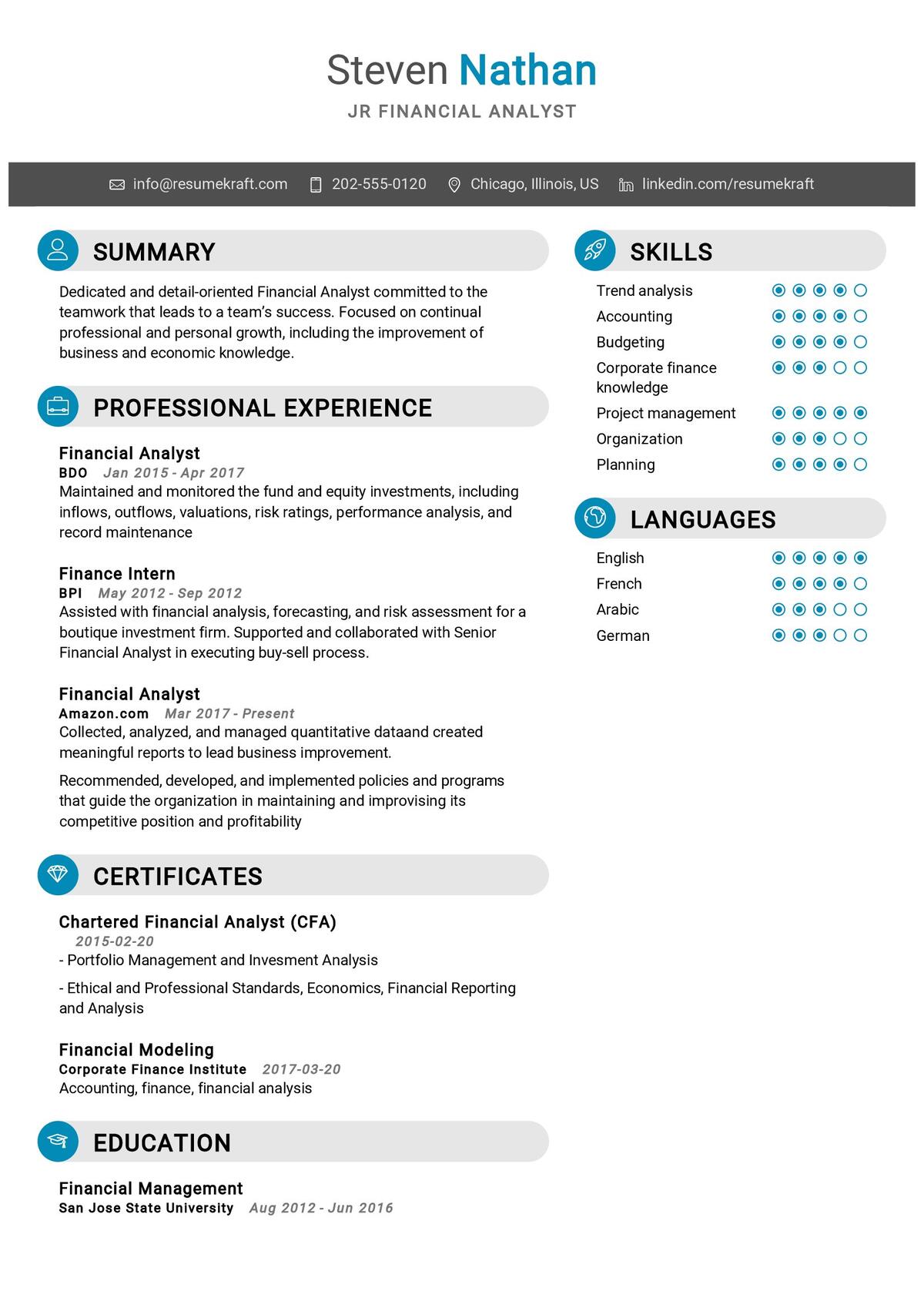
The role of a Human Resources Operations Specialist is crucial in ensuring the smooth functioning of HR processes within an organization. They are responsible for managing HR systems, improving employee experience, coordinating HR functions, and supporting the overall HR department in delivering strategic HR services. When preparing for an interview for this position, it is essential to demonstrate your knowledge of HR operations, your ability to problem-solve, and your experience working with HR software, policies, and people management.
To help you prepare, we’ve compiled the top 36 interview questions that are commonly asked during Human Resources Operations Specialist interviews, along with answers and explanations to guide your responses.
Top 36 Human Resources Operations Specialist Interview Questions
1. Can you describe your experience in managing HR operations?
In my previous role, I was responsible for overseeing various HR operations, such as payroll management, employee onboarding, compliance with labor laws, and maintaining employee records. I also collaborated closely with other departments to ensure HR processes were streamlined and effective. My goal was always to improve HR efficiency and ensure employees received accurate information and support.
Explanation: This answer emphasizes practical experience and gives an overview of key HR operations functions that are critical to the role.
2. How do you handle HR data privacy and confidentiality?
HR data privacy is critical, and I ensure that sensitive employee information is protected by following strict confidentiality protocols. This includes limiting access to HR data, using secure systems for data storage, and training staff on privacy policies. I also stay updated on data protection regulations like GDPR to ensure compliance.
Explanation: The answer demonstrates an understanding of the importance of data privacy in HR and the steps to ensure data confidentiality.
3. How do you ensure compliance with employment laws and regulations?
I regularly review and update HR policies to ensure compliance with employment laws and regulations. This involves working closely with the legal team and staying informed about any changes in labor laws. I also provide training to staff and managers on compliance-related topics, such as anti-discrimination laws and workplace safety standards.
Explanation: Compliance is a key part of HR operations, and this answer highlights the importance of staying up to date with laws and providing training.
4. Can you give an example of how you improved an HR process?
In my last role, I improved the onboarding process by automating paperwork and implementing an online employee portal. This reduced the time spent on administrative tasks and allowed new hires to access resources more efficiently. The changes led to a smoother onboarding experience and quicker integration of new employees into the team.
Explanation: Process improvement is a critical skill in HR operations, and this answer demonstrates initiative and problem-solving.
5. How do you manage employee benefits and compensation?
I work closely with the finance department to ensure that employee benefits and compensation are aligned with company policies and market standards. I regularly review benefits packages to ensure they remain competitive and communicate these benefits clearly to employees. I also manage payroll processes and resolve any compensation-related issues promptly.
Explanation: This answer addresses both the technical and communicative aspects of managing employee compensation and benefits.
6. How do you resolve conflicts between employees?
When conflicts arise, I take a neutral stance and ensure that both parties have the opportunity to express their concerns. I listen carefully, investigate the issue, and work with both employees to find a resolution that aligns with company policies. If necessary, I involve senior management to mediate.
Explanation: Conflict resolution is a key HR skill, and this answer shows an understanding of mediation and fairness.
Build your resume in just 5 minutes with AI.

7. How do you handle employee performance management?
I believe in a structured approach to performance management, including regular feedback, performance reviews, and development plans. I work with managers to set clear goals for their teams and ensure that employees understand performance expectations. If performance issues arise, I collaborate with the employee and their manager to develop an improvement plan.
Explanation: Performance management is crucial in HR, and this answer highlights the importance of clear communication and goal setting.
8. How do you stay updated on HR trends and best practices?
I stay updated on HR trends by attending HR conferences, reading industry publications, and participating in online HR forums. I also maintain memberships in professional HR associations like SHRM, which provides resources and insights into the latest best practices and trends.
Explanation: Continuous learning is important in HR, and this answer demonstrates a proactive approach to staying informed.
9. How do you manage HR software and systems?
I have experience using a variety of HR software systems, including Workday, BambooHR, and ADP. I ensure that all HR data is entered accurately and regularly review reports to monitor HR metrics like employee turnover and absenteeism. I also train staff on how to use HR systems effectively.
Explanation: HR operations specialists need to be proficient in HR systems, and this answer shows both technical skills and leadership in training others.
10. What role does HR operations play in employee engagement?
HR operations play a key role in employee engagement by ensuring that employees have access to the resources and support they need to succeed. From managing payroll efficiently to handling benefits and creating a positive onboarding experience, HR operations help to foster a positive work environment that promotes engagement and retention.
Explanation: This answer connects the operational side of HR to broader goals like employee engagement and retention.
11. How do you approach employee training and development?
I work with department heads to identify skill gaps and design training programs that align with business goals. I also encourage a culture of continuous learning by offering access to online courses and workshops. Additionally, I track the effectiveness of training programs through post-training assessments.
Explanation: This response shows a strategic approach to employee development, a key part of HR operations.
12. How do you manage employee leave and absence policies?
I manage leave policies by ensuring they comply with labor laws and company policies. I also track employee leave through HR systems and provide clear guidance on how employees can request leave. If necessary, I adjust staffing levels to ensure that business operations are not impacted by absences.
Explanation: Managing leave policies efficiently is crucial for smooth HR operations, and this answer emphasizes organization and compliance.
13. How do you handle payroll discrepancies?
When payroll discrepancies arise, I investigate the issue immediately by reviewing the payroll data and consulting with the payroll team. I communicate with the affected employee to keep them informed and resolve the issue as quickly as possible. Preventing future discrepancies involves regular payroll audits and checks.
Explanation: This answer highlights problem-solving skills and the importance of accurate payroll management.
14. How do you manage HR documentation and record-keeping?
I ensure that HR documentation is organized and stored securely, either digitally or in physical files. I follow a clear retention policy to comply with legal requirements and ensure that all employee records, such as contracts, performance reviews, and leave records, are up-to-date and easily accessible.
Explanation: This answer demonstrates attention to detail and the ability to manage HR records efficiently.
15. How do you assist with employee recruitment and selection?
I work closely with hiring managers to define job requirements, post job listings, and screen candidates. I also coordinate interviews, check references, and ensure that the recruitment process is aligned with the company’s diversity and inclusion policies. Throughout the process, I ensure timely communication with candidates.
Explanation: HR operations specialists often support recruitment processes, and this answer emphasizes collaboration and communication.
16. How do you handle employee exit processes?
During employee exits, I ensure that the offboarding process is smooth by conducting exit interviews, collecting company property, and closing out any outstanding HR matters, such as final payroll and benefits. I also document the reasons for the employee’s departure to identify potential areas for improvement in retention.
Explanation: Handling employee exits properly ensures a smooth transition for both the employee and the company.
17. How do you support diversity and inclusion initiatives?
I actively support diversity and inclusion initiatives by ensuring that HR policies and practices promote equal opportunities for all employees. This includes fair hiring practices, unbiased performance evaluations, and inclusive benefits programs. I also collaborate with the D&I team to provide training on diversity awareness.
Explanation: Promoting diversity and inclusion is an essential part of HR, and this answer shows commitment to fairness and equality.
18. How do you handle employee grievances?
I take employee grievances seriously and handle them with confidentiality and impartiality. I follow a formal process that includes listening to the employee’s concerns, investigating the issue, and working with the relevant parties to find a resolution that complies with company policies and labor laws.
Explanation: Addressing employee grievances effectively is important for maintaining a positive work environment.
Planning to Write a Resume?
Check our job winning resume samples


19. How do you support managers in their HR responsibilities?
I provide managers with the tools and training they need to handle HR responsibilities such as performance reviews, employee development, and conflict resolution. I also act as a point of contact for managers when they need guidance on HR policies or processes.
Explanation: Supporting managers ensures that HR practices are implemented consistently across the organization.
20. How do you manage employee recognition programs?
I work with senior leadership to design and implement employee recognition programs that align with company values. These programs include awards for outstanding performance, milestone celebrations, and peer recognition initiatives. I also track the effectiveness of these programs through employee feedback and engagement surveys.
Explanation: Recognition programs help boost employee morale and retention, and this answer shows a strategic approach to implementing them.
21. How do you manage HR metrics and reporting?
I regularly track key HR metrics such as employee turnover, absenteeism, and employee engagement. I generate reports that help senior leadership understand trends and make data-driven decisions. I also use these metrics to identify areas where HR
processes can be improved.
Explanation: HR metrics are essential for making informed decisions, and this answer highlights data analysis skills.
22. How do you handle employee benefits administration?
I manage benefits administration by ensuring employees understand their benefits and assisting them with enrollment. I also work with external vendors to ensure that benefits such as health insurance, retirement plans, and wellness programs are administered correctly and efficiently.
Explanation: Benefits administration is an important part of HR operations, and this answer shows a focus on both employee support and vendor management.
23. How do you manage remote employee HR needs?
For remote employees, I ensure that HR processes like onboarding, payroll, and benefits enrollment are easily accessible online. I also provide remote employees with clear communication channels for any HR-related queries and ensure they are included in company-wide HR initiatives like training and development programs.
Explanation: Supporting remote employees requires adapting traditional HR processes to a digital environment.
24. How do you ensure a smooth onboarding process?
I ensure a smooth onboarding process by providing new hires with a clear onboarding plan, conducting orientation sessions, and assisting them with setting up their HR accounts. I also assign a mentor to each new hire to help them adjust to the company culture and answer any questions they may have.
Explanation: A structured onboarding process helps new employees integrate quickly and effectively.
25. How do you handle employee promotions and transfers?
I manage promotions and transfers by working with department heads to ensure that employees meet the necessary qualifications and performance criteria. I also assist with the paperwork and ensure that the promotion or transfer is reflected in the employee’s records and compensation.
Explanation: Handling promotions and transfers efficiently helps retain top talent and ensure smooth transitions.
26. How do you manage health and safety compliance in the workplace?
I work with the health and safety team to ensure that the workplace complies with all relevant safety regulations. This includes conducting regular safety audits, providing safety training to employees, and maintaining accurate records of safety incidents.
Explanation: Health and safety compliance is critical to creating a safe working environment for employees.
27. How do you handle time and attendance tracking?
I manage time and attendance tracking through HR software, ensuring that employees’ working hours are accurately recorded and any discrepancies are resolved promptly. I also ensure that time-off requests are handled in accordance with company policies and that employees are paid correctly for their time worked.
Explanation: Accurate time tracking ensures that employees are compensated fairly and prevents payroll issues.
28. How do you manage employee wellness programs?
I design and implement employee wellness programs that include mental health support, fitness initiatives, and work-life balance resources. I also track participation in these programs and gather feedback from employees to continuously improve the offerings.
Explanation: Wellness programs are an essential part of maintaining employee well-being and overall productivity.
29. How do you manage employee surveys?
I coordinate employee surveys to gather feedback on workplace culture, engagement, and HR services. I ensure that the surveys are anonymous and analyze the results to identify trends and areas for improvement. I also communicate the findings to leadership and work on action plans to address concerns.
Explanation: Employee surveys provide valuable insights into workplace satisfaction and areas for improvement.
30. How do you manage labor relations?
I ensure positive labor relations by maintaining open communication with employee representatives and addressing any concerns before they escalate into larger issues. I also stay informed about collective bargaining agreements and work closely with the legal team to ensure compliance with labor laws.
Explanation: Maintaining good labor relations helps prevent conflicts and promotes a harmonious workplace.
31. How do you manage workforce planning?
I collaborate with senior leadership to assess the current workforce and identify future staffing needs. This involves analyzing turnover rates, assessing skill gaps, and planning for succession. I also ensure that workforce plans align with the company’s strategic goals.
Explanation: Workforce planning helps ensure that the company has the right people in place to achieve its goals.
32. How do you manage temporary or contract workers?
I ensure that temporary and contract workers are properly onboarded and that their contracts comply with legal requirements. I also monitor their performance and ensure they are integrated into the company culture. When necessary, I work with managers to extend or terminate contracts based on business needs.
Explanation: Managing temporary workers requires attention to legal compliance and integration into the team.
33. How do you handle employee retention?
I handle employee retention by focusing on employee satisfaction, providing opportunities for growth, and ensuring that compensation is competitive. I also conduct stay interviews to understand what motivates employees to stay and address any concerns before they become reasons for departure.
Explanation: Retaining employees is critical for reducing turnover and maintaining a productive workforce.

Build your resume in 5 minutes
Our resume builder is easy to use and will help you create a resume that is ATS-friendly and will stand out from the crowd.
34. How do you manage HR audits?
I manage HR audits by ensuring that all HR documentation is up-to-date and that HR processes comply with company policies and legal regulations. I also work with external auditors to provide the necessary records and resolve any issues that arise during the audit.
Explanation: HR audits help ensure that the company is compliant with legal regulations and best practices.
35. How do you manage employee feedback programs?
I implement employee feedback programs to gather insights into employee satisfaction and engagement. This includes annual or quarterly feedback surveys, 360-degree feedback, and one-on-one check-ins. I analyze the feedback and present the results to management, along with recommendations for improvement.
Explanation: Employee feedback programs provide valuable insights into workplace satisfaction and can drive improvements in HR policies.
36. How do you manage employee communications?
I ensure clear and consistent employee communications by using multiple channels, such as emails, newsletters, and internal communication platforms. I also ensure that all communications are aligned with company policies and provide employees with the information they need to stay informed about HR updates and company news.
Explanation: Effective employee communication ensures that everyone is informed and engaged with the company’s mission and values.
Conclusion
Human Resources Operations Specialists play a vital role in managing the day-to-day HR functions that keep a company running smoothly. From handling payroll and benefits to ensuring compliance with employment laws and maintaining employee records, the responsibilities of an HR Operations Specialist are diverse and impactful. By preparing for your interview with the above questions and answers, you can demonstrate your expertise in HR operations and increase your chances of landing the role.
Recommended Reading:

